Navigate This Page
- What Parts of a Personal Injury Settlement Count as Taxable Income in Pennsylvania?
- What Parts of a Personal Injury Settlement Are Exempt From Taxes in Pennsylvania?
- How Does the IRS Treat Personal Injury Settlements?
- How To Avoid Tax Issues With Your Personal Injury Settlement
- Ways To Minimize Your Tax Liability After Receiving a Personal Injury Settlement
- Key Takeaways
- We’re Here To Help You Understand the Tax Rules for Your Settlement
Personal injury compensation is not usually subject to income tax in Pennsylvania. However, certain portions of a settlement may be taxable, including punitive damages, interest, and reimbursement of medical expenses you previously deducted.
At Cordisco & Saile, LLC, we guide injured clients through every stage of the recovery process, including understanding the financial impact of their compensation. Our attorneys are here to help you determine if you need to pay taxes on your personal injury settlement in PA based on your unique circumstances.
Which Parts of a Personal Injury Settlement Count as Taxable Income in Pennsylvania?
The following types of settlement payments are generally subject to taxes:
- Punitive damages: These damages aim to punish the defendant rather than compensate you for harm. The IRS classifies punitive damages as taxable income, meaning you must pay federal taxes on them. However, you do not have to pay state income taxes on punitive damages in Pennsylvania.
- Accrued interest: Sometimes, the defendant’s insurance company or the court adds interest to a settlement amount to compensate for delays in resolving the case. That extra money is considered income, not compensation for your injuries, and you must pay taxes on it.
- Medical expenses previously deducted: If you deducted medical expenses for your injury in earlier tax years, that changes how your settlement is taxed. When you later receive reimbursement for those same expenses, that portion of the settlement is taxable—but only up to the amount your earlier deduction reduced your tax bill.
Which Parts of a Personal Injury Settlement Are Exempt From Taxes in Pennsylvania?
Non-taxable portions of a personal injury settlement include:
- Compensation for medical expenses: The entire reimbursement is tax-free if you did not previously deduct these costs on your tax return.
- Lost income during recovery: Any money you receive to replace the wages you lost due to your injury is non-taxable.
- Pain and suffering payments: Compensation you receive for the physical pain and emotional distress you suffer because of your injury is excluded from taxable income.

How Does the IRS Treats Personal Injury Settlements
The Internal Revenue Service, or IRS, treats certain parts of a personal injury settlement as taxable income. Whether a portion is taxable depends on what the payment compensates you for.
According to 26 U.S.C. § 104(a), damages paid “on account of personal physical injuries or physical sickness” are not taxable. This means the portion of a settlement that reimburses you for the effects of your injury does not count as income for tax purposes. It also means not all personal injury settlements are taxable in Pennsylvania.
How To Avoid Tax Issues With Your Personal Injury Settlement
The last thing you need after a serious injury is a surprise from the IRS. Avoiding these common mistakes can prevent unnecessary issues with your Pennsylvania personal injury settlement taxes:
- Assuming the entire settlement is tax-free: Most compensation for physical injuries is exempt from taxes, but some components do count as taxable income.
- Overlooking past medical deductions: The tax rules for medical expenses can be confusing, and misunderstanding them can lead to issues with the IRS. If you deducted medical expenses for the same injury in earlier years, don’t forget that you will owe taxes on a portion of those costs.
- Failing to keep copies of your settlement agreement: This document shows how the payment was divided between taxable and non-taxable categories. Without it, you may have trouble proving which portions are exempt. Be sure to have it on hand when tax season arrives, and hold onto it in case the IRS audits you later.
- Not setting aside money for taxes: Using your full payout immediately may be tempting, but doing so may leave you with an unexpected tax bill. Set aside enough to cover any taxable portion of your settlement before you start spending money.
Get legal help from a team that will never stop fighting for you.
Minimizing Your Tax Liability After Receiving a Personal Injury Settlement
Acting carefully can help you protect your compensation and avoid paying more than you owe. Here are some tips for minimizing the taxes on your personal injury settlement in PA.
Make Sure the Settlement Clearly States What Each Payment Covers
Ask your lawyer to spell out precisely what your settlement money is for in the agreement. Detailed wording makes it clear to the IRS what is taxable and what’s not, so you can keep more of your settlement tax-free.
Spread Payments Over More Than One Tax Year
If your settlement includes taxable portions, consider receiving the money in installments rather than as a single lump sum. This is called a structured settlement. Dividing payments between multiple tax years may keep you in a lower tax bracket and reduce the total taxes you owe.
Get Tax Advice Before You Finalize the Settlement
The best time to reduce taxes is before you sign your settlement agreement. A tax professional can review how your payout is structured and suggest changes to protect more of your recovery.
Pay Taxes Early To Avoid Penalties
If part of your settlement is taxable, consider paying what you owe in quarterly installments before tax season. Sending estimated payments early can help you avoid IRS penalties and interest charges for underpayment.
Key Takeaways
- Most parts of a personal injury settlement are not taxable. Money you receive for physical injuries or illnesses is excluded from income under federal tax law.
- Certain proceeds from a lawsuit may be subject to federal taxes. These include punitive damages, interest, and reimbursements for previously deducted medical expenses.
- Clear allocation language and early tax guidance can reduce what you owe and protect your recovery.
- Unlike federal tax laws, Pennsylvania tax laws don’t require taxation on punitive damages for personal injuries.
We’re Here To Help You Understand the Tax Rules for Your Settlement
Tax rules for personal injury settlements can be confusing, and you deserve clarity during a challenging time. At Cordisco & Saile, LLC, we support our injured clients throughout every stage of the settlement process, from negotiation to tax planning. Our Pennsylvania car accident lawyers can pursue maximum compensation for your damages and help you understand if you need to pay taxes on your Pennsylvania personal injury settlement.
Before you accept a settlement, call 215-642-2335 or contact us online for a free consultation with our nationally recognized team of attorneys. We’ll review your case, explain your options, and guide you toward the best possible financial outcome.

Serving as a personal injury attorney in Pennsylvania, Michael Saile has been honored as both a Brain Injury Top 25 Lawyer by National Trial Lawyers and a 2024 Super Lawyer. He earned his J. D. at Widener University School of Law where he was a member of the Moe Levine Trial Advocacy Honor Society. Saile is also the author of two publications titled “Not Another Bad Lawyer” and “Don’t Crash Again”.




